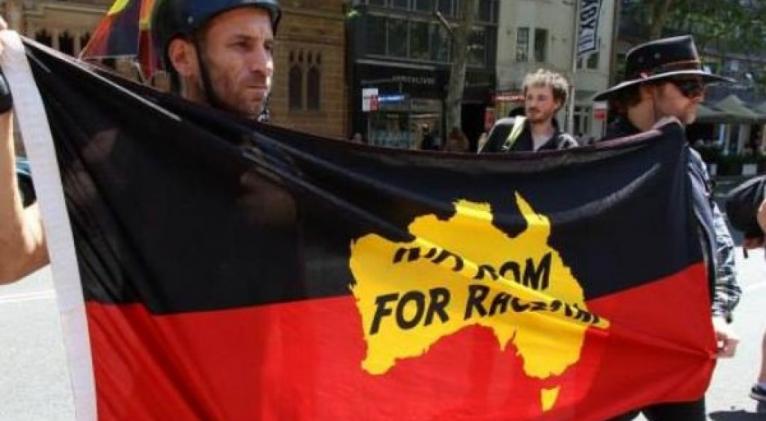Aboriginal Deaths in Australian Prisons Due to Jailers' 'Indifference'

Indigenous leaders in Australia have warned that the levels of Indigenous deaths in custody remain at “outrageous” levels, more than 20 years after a royal commission sought to end the tragedies.
“There is, however, a need to look at the jail systems across Australia and their indifference to the removal of hanging points from all the jail cells,” Ray Jackson, of the Indigenous Social Justice Association told teleSUR English in an exclusive interview on Saturday.
In 1991 a royal commission into spiraling rates of Indigenous deaths in custody demanded prisons across the country examine cells for points where prisoners could hang themselves, and remove them.
The royal commission was established in 1987 in response to an outcry from the public over allegations Indigenous Australians were dying in prisons at a vastly higher rate than non-Indigenous prisoners.
Although the commission found no evidence Indigenous prisoners died at a higher rate than the wider prisoner population, it did conclude Indigenous Australians are imprisoned at a far higher rate than the general population.
Many Indigenous deaths were attributed to self-harm and suicide. The commission issued over 300 recommendations to prison authorities to reduce deaths, but still today Indigenous rights advocates say many recommendations have gone unheeded, and Indigenous deaths in custody have only increased since the commission.
In 2013, the Australian Institute of Criminology (AIC) found Indigenous deaths in prisons had spiked over the five preceding years, despite deaths in custody for non-Indigenous prisoners remaining stable.
The AIC found most deaths were caused by heart conditions and other medical problems, though self-harm remained high.
The latest death occurred on October 22, when an Indigenous man referred to only as Mr Wallam hung himself in Perth's Casuarina Prison.
Mr Wallam cannot be further identified for cultural reasons. According to a report by The Australian on Sunday, Mr Wallam was just three months away from being released.
News of the man's death hit local media as thousands of Australians were taking part in marches to protest Indigenous deaths in custody on October 23.
“It is ironic that as hundreds were marching around this country to raise our concerns of the outrageous number of death in custody of Aborigines an unnamed 31 year old Aboriginal man is reported to have suicided in Casuarina Jail,” Jackson said.
Jackson argued prison authorities urgently need to take action to curb Indigenous deaths, and he isn't alone. Peter Boyle from Australia's Green Left Weekly newspaper told teleSUR, “There have been 340 Aboriginal deaths in custody since the end of the royal commission.”
“Most could have been prevented if the (commission's) recommendations were all implemented,” he said.
Head of the Deaths in Custody Watch Committee Marc Newhouse told The Australian newspaper there were allegations prisoners at Casuarina were mistreated, and that the prison was overcrowded.
“Two decades after the royal commissions, why are there still hanging points in jails?” Newhouse asked. During the protests the day after Mr Wallam's death, Western Australian premier Colin Barnett told crowds in Perth he would make a “personal commitment” to reduce Indigenous prisoner deaths.
“I will do that, you then judge me on whether I succeed or not, but I give you that commitment today,” Barnett stated, according to the UK's Guardian newspaper.
However, Barnett's comments weren't in response to Mr Wallam's death, but yet another Indigenous prisoner in the state.
Julieka Dhu died on August 4 while being held in custody at the South Hedland Police Station in Western Australia.
Dhu was being held in a process referred to as “paying down” fines. She reportedly carried around AU$1000 (US$880) in unpaid parking fines, which she was paying off by serving time in prison.
While other states such as New South Wales have long abandoned forcing people to pay off fines they can't afford with prison time, as Jackson put it, in Western Australia “the old law still stands.”
One in seven prisoners in Western Australia between 2008 and 2013 were incarcerated purely to pay off fines, according to a report by The West Australian newspaper.
“It's doubly wrong because the state and the taxpayer are losing the revenue from the fines and the individuals who are making no contribution are actually costing us. It costs to put people in prison,” the state's shadow corrective services minister Paul Papalia said, according to the newspaper.
However, Jackson argued the measure amounts to a “Dickensian and brutally uncaring process of jailing the poor.”
“Those who cannot pay the fines placed upon them are doubly punished,” he stated.













Add new comment